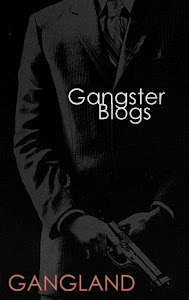
Hells Angels Motorcycle Club takes to the courts in a bid to force police to return its vests, jewellery, calendars, scarves, T-shirts, belt buckles, rings, pins, posters, a cuckoo clock, bumper stickers and anything else they have seized bearing the bikers' trademarked logo of a winged skull. Those items were seized in dozens of police raids since the club came to Ontario eight years ago – including the Project Tandem raids on the Toronto chapter's Eastern Ave. clubhouse and the Oshawa chapter's Ortono Ave. headquarters.The bikers' appeal to the Ontario Court of Justice is believed to be the first such legal action for the world's largest outlaw motorcycle club, considered a criminal organization by Ontario courts. But in the past, they have jealously protected the copyright of their winged-skull logo, successfully suing an author over the use of the logo on a book cover and even forcing Disney Pictures to change a movie script.While it is a unique case, it should not be shocking that the bikers are so defensive about their logo, says Prof. Ken Hardy of the Ivey School of Business at the University of Western Ontario in London."This is basic marketing: you define yourself," said Hardy, who teaches business students the importance of brand identification – or "branding" – in mainstream marketing.If they lose the power of their trademarked logos, Hardy says, "they're diminishing their stock as a badass." That stock helps them recruit members, conduct business and feel special, the professor says.
The trademark issue will be addressed on March 16 at the University Ave. courthouse, when Gerald (Skinny) Ward of the Hells Angels Niagara chapter will be sentenced for cocaine trafficking.Lawyers representing the Hells Angels have already notified the court that all items bearing the Hells Angels' winged-skull logo are the property of the club's headquarters in Oakland, Calif., and not individual bikers.They have filed an affidavit with the Ontario Court of Justice that includes a contract signed by Windsor Hells Angel Giuliano Raimondo with the international club on Aug. 31, 2006, on becoming a member.
The opening clause of the contract for new members reads: "The right to ownership of any and all articles bearing the name "HELLS ANGELS" and/or the winged skull insignia/logo known as a "DEATH HEAD" (both of which are registered with the United States Patent Office) ... are the sole and legal property of HAMC (Hells Angels Motorcycle Club)."The contract further states that Raimondo and others in the club wear their Hells Angels vest and other items bearing the logo only at the discretion of the club and that their right to do so "is subject to revocation at any time and for any or no reason at the sole option and discretion of the HAMC."The contract further states that the name "Hells Angels" and the logo are copyrighted with the club in the United States, Canada, Austria, Australia, Britain, France, Brazil, Hong Kong, Taiwan and Japan.
The final clause of the contract states that if Raimondo dies or leaves the club, he agrees that all material bearing the club logo "shall immediately be relinquished to a duly appointed representative of the HAMC, by either myself or my surviving heirs."
A Whitby court heard last year that if a tattoo bears the name "Hells Angels" or the death head logo, then even the skin of a member is considered club property.Members who leave the club in good standing are expected to tattoo an "expiry date" under any club tattoos, indicating the date he became a non-member.Members who are kicked out of the club are expected to immediately remove the words "Hells Angels" and the club logos from their skin. Steven Gault, the former secretary of the Oshawa Hells Angels who became a police agent, told a Whitby court this winter that he has heard of a cheese grater being used to forcibly remove a logo from a reluctant former member.Raimondo and Craig McIlquham of Oakville, also of the Windsor Hells Angels, were arrested in September 2006. They were each sentenced to five years and six months in prison for trafficking a kilo of cocaine, 10,000 ecstasy pills and two kilograms of methamphetamine. They also jointly forfeited $139,500 seized as proceeds of crime.A police brief filed as part of a recent biker trial states that wearing the name "Hells Angels" and a death head patch commands immediate brand recognition among criminals."The Hells Angels name and Death Head logo being worn by a member ... indicates to other Hells Angels members and the criminal subculture that they can deal or do business with him knowing that they will not be `ripped off' and that the Hells Angels member would not make any statements to the police," the police brief states. "They do, however, know that if they rip off the Hells Angels member, it is as if they have ripped off the whole club."Minutes from a Hells Angels world officers' meeting held on June 9, 2006, in Ashfield, England, note a suggestion that the club study the efforts made by large corporations like Coca Cola and Nike to deter trademark infringements, "as they combat similar problems ..." Each member is charged with the responsibility of maintaining copyright protection.
An April 2004 club memo seized from the gang's Eastern Ave. clubhouse says that Larry Pooler of the Downtown Toronto chapter was in charge of overseeing logo protection for Central Canadian Hells Angels chapters.














0 comments:
Post a Comment